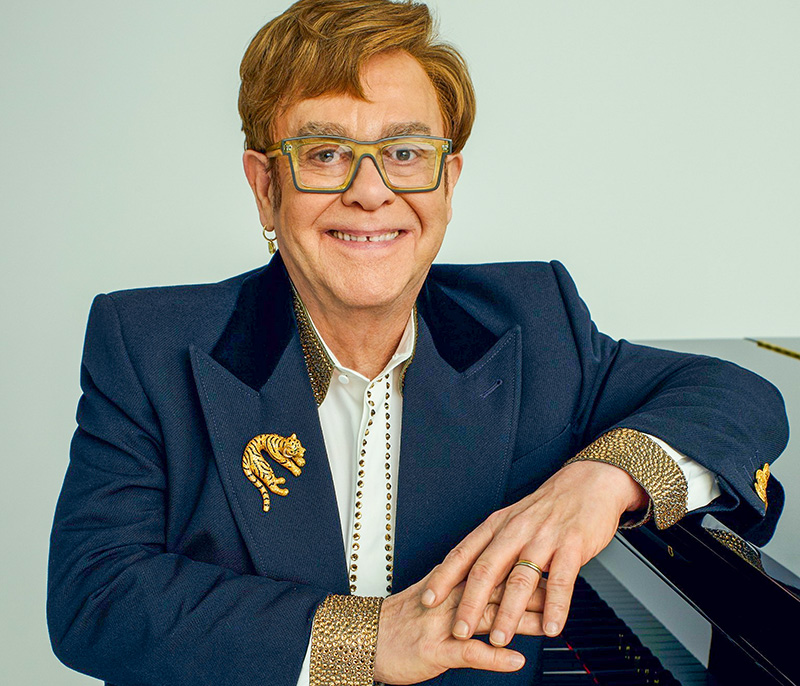Director Oliver Stone calls Russia’s anti-gay law “sensible” while interviewing Putin
The filmmaker also complained about recognizing gender identity and transgender people

Filmmaker Oliver Stone has praised Russia’s anti-gay ‘propaganda’ law, telling Russian President Vladimir Putin that the law is “sensible.”
Stone, director of films such as JFK, W, and Natural Born Killers, made the comments during an interview with Putin for Stone’s documentary Revealing Ukraine.
According to a transcript of the interview released by the Kremlin, Stone praised the 2013 law — which banned the promotion of “nontraditional sexual relationships” — and complained about the increasing recognition of gender identity.
“As you know, I’ve been very rebel all my life. Still am. And I have to tell you, I’m shocked by some of the behaviors and the thinking of the new generation,” Stone said. “It takes so much for granted. And so much of the argument, so much of the thinking, so much of the newspaper, television commentaries about gender, people identify themselves, and social media, this and that, I’m male, I’m female, I’m transgender, I’m cisgender. It goes on forever, and there is a big fight about who is who. It seems like we miss the bigger point.”
Putin responded that the younger generation “live too well” and “have nothing to think about.” Stone said “it’s not a healthy culture,” to which Putin said, “Well, yes.”
Stone then moved to homosexuality and Russia’s ban on “homosexual propaganda.”
“Years ago when we were talking about homosexuality, you said that in Russia we don’t propagate it,” Stone said.
“Not exactly,” Putin responded. “We have a law banning propaganda among minors.”
“Yes, that’s the one I’m talking about,” Stone said. “It seems like maybe that’s a sensible law.”
Putin then claimed that the ban on “propaganda” — or, informing young Russians about LGBTQ people — allows youth to “reach maturity and then decide who they are and how they want to live. There are no restrictions at all after this.”
That of course flies in the face of reports from Russia that the propaganda ban has led to rises in anti-LGBTQ violence, including the repression of LGBTQ groups, restrictions on media with LGBTQ content, and the attempted suppression of media reports about a crackdown on LGBTQ people in Russia-controlled Chechnya.
Just last week, the European Court of Human Rights ordered Russia to pay damages to three LGBTQ groups, arguing that the country’s anti-gay law had violated their human rights.
Earlier this year, Russian censors deleted all instances of gay sex or same-sex relationships from Elton John biopic Rocketman, to avoid falling foul of the “propaganda” ban. The edits were so severe, a photo of John and husband David Furnish was even excised from the closing credits.
Last year, a Russian teenager was found guilty of violating the “propaganda” law after publishing pictures of half-naked men on a Russian social network site. Authorities argued that the 16-year-old was posting content “whose appearance had the characteristics of propaganda of homosexual relations.”
And Russia has continually downplayed or denied a reported anti-gay “purge” in Chechnya, where gay people have been kidnapped, tortured, and even murdered.
More than 100 gay men in Chechnya were arrested and detained against their will without trial, with survivors reporting they had been tortured and seen compatriots killed while in prison. Those detentions, arrests, and alleged killings occurred at intervals on a continuing basis during the spring and summer of 2017.
Yet despite calls from LGBTQ activists and from European and international leaders for an investigation into the alleged killings, Russian authorities claimed that a state investigation failed to find evidence supporting survivors’ claims of torture and abuse in makeshift detention centers — largely because few people had filed complaints about being arrested and detained against their will.
Reports at the start of 2019 suggested that a crackdown was once again occurring, with several men and women apparently being detained in secret detention facilities.
Support Metro Weekly’s Journalism
These are challenging times for news organizations. And yet it’s crucial we stay active and provide vital resources and information to both our local readers and the world. So won’t you please take a moment and consider supporting Metro Weekly with a membership? For as little as $5 a month, you can help ensure Metro Weekly magazine and MetroWeekly.com remain free, viable resources as we provide the best, most diverse, culturally-resonant LGBTQ coverage in both the D.C. region and around the world. Memberships come with exclusive perks and discounts, your own personal digital delivery of each week’s magazine (and an archive), access to our Member's Lounge when it launches this fall, and exclusive members-only items like Metro Weekly Membership Mugs and Tote Bags! Check out all our membership levels here and please join us today!






















You must be logged in to post a comment.